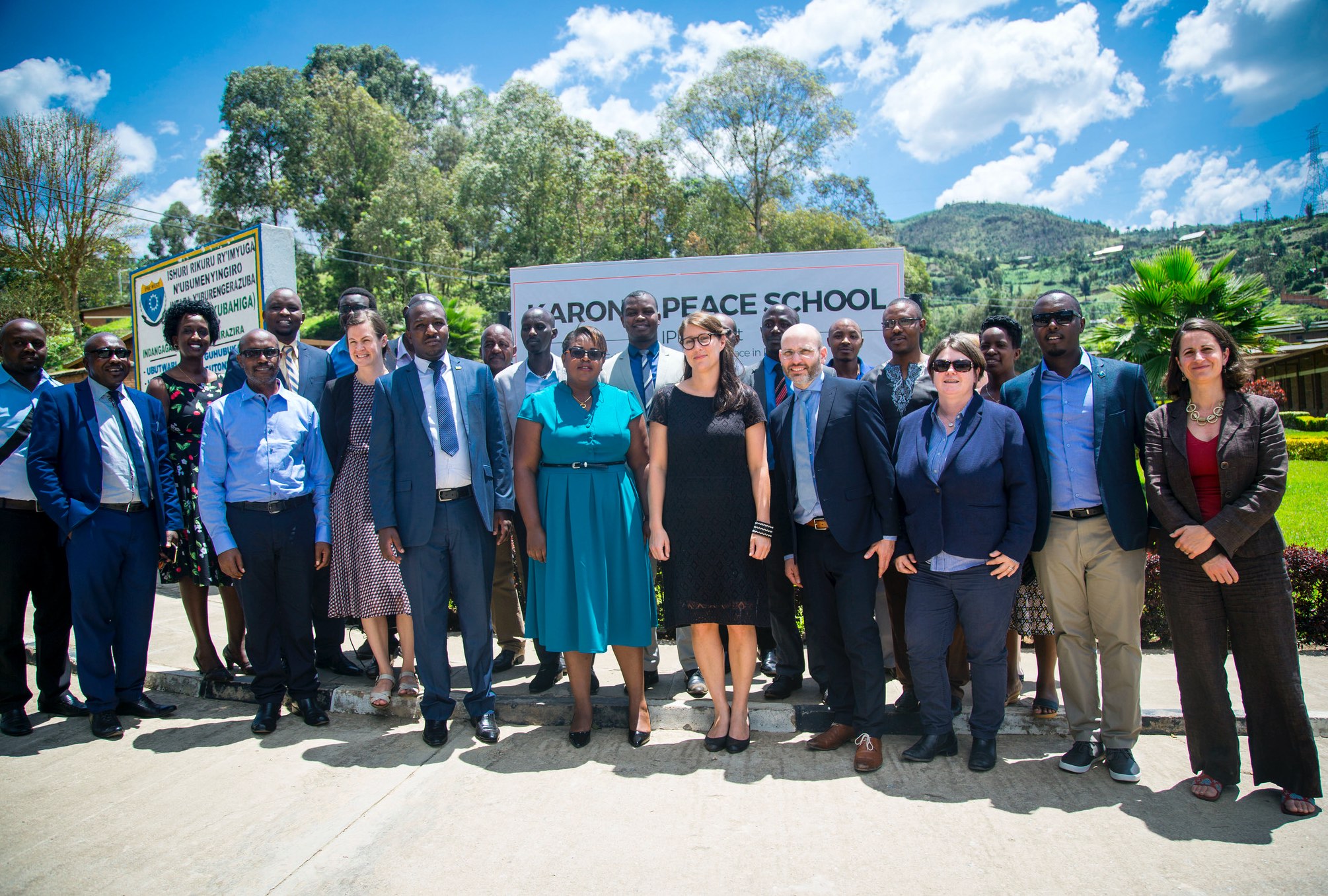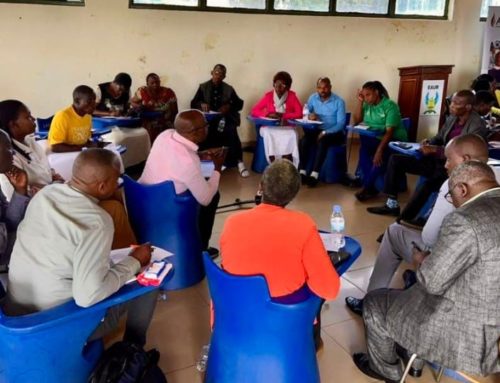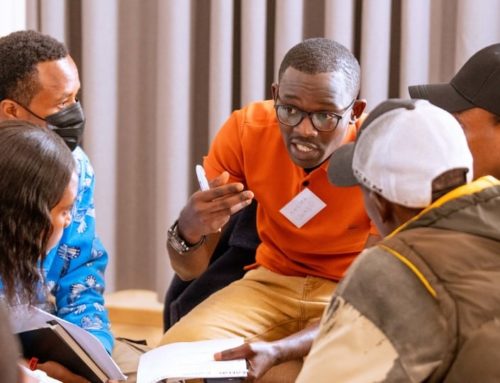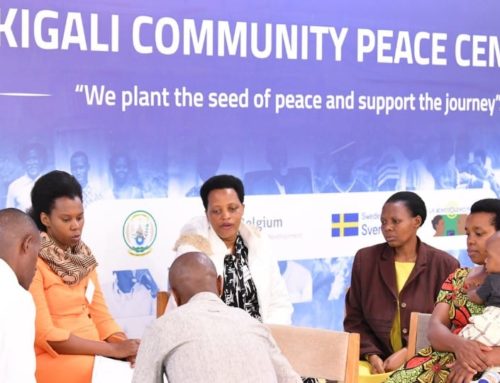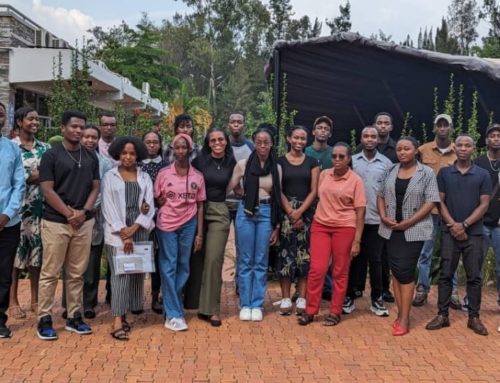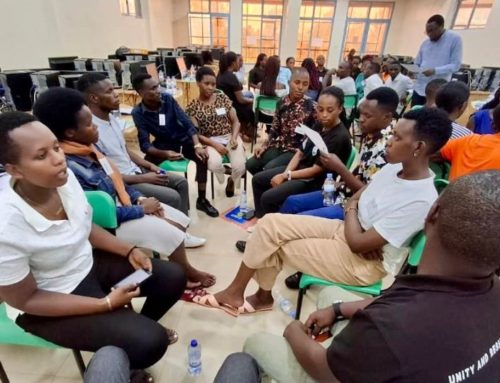Aegis Trust and partners yesterday launched Karongi Peace School, a resource centre for peace education in the Western Province of Rwanda. The Karongi Peace School is a centre dedicated for training and events on peace education for formal Educators (teachers), informal Educators (parents), Youth and other community members, as well as Decision-makers and Researchers.
Freddy Mutanguha, the Aegis representative for Africa said that the Karongi Peace School will be a centre that promotes social cohesion in Rwanda, which in the past used to be one of the centres of divisionism and hatred that he personally experienced. “I had a bad past at this school. When I was young, I came to pass my exams to be admitted for secondary school. When I was filling the exam form, I had to specify if I was a Hutu or Tutsi. Despite being always the first in my class I failed because of my ethnic group. Standing here today in the same school, opening this centre for peace education, is like a miracle and a great fact that social cohesion is possible.”
The Swedish Ambassador to Rwanda, Honorable Jenny Ohlsson emphasized on the role of Peace and values in building a peaceful society: “We are very pleased that Aegis Trust and their partners through this programme managed to take Peace Education to a new level to promote social cohesion, positive values including pluralism, personal responsibility, empathy, critical thinking and action. All these are crucial in order to build a more peaceful society.” (Here is the full text of the Ambassador’s speech.)
Sylvain Mudahinyuka, a representative of the Ministry of Education, said that the Karongi Peace School will be a great tool in boosting the quality of education in Rwanda: “On behalf of the Minister of Education I would like to acknowledge the contribution of Aegis Trust in peace building and its achievements to have Peace and Values Education as a crosscutting issue in Rwanda’s Schools Curriculum. I encourage teachers, parents, students and community of Karongi district and surrounding districts to participate in the training and use the resources of this centre. I am sure it will bring a big change in Rwandan communities. Furthermore, this is a great tool to boost the quality of education in Rwanda and a tool to reduce the numbers of children dropping out of school, because if a place is peaceful, students would feel comfortable being there. We therefore warmly welcome this initiative. ”
“The aim is to have a number of peace schools in the country to bring peace education closer to the community,” said Dr James Smith, Chief Executive of the Aegis Trust. “This Peace School is the first; we hope that after the success of this school, other peace schools will be established in different parts of Rwanda.”
In the past three years, Aegis Trust, in the framework of its Rwanda Peace Education Programmes (RPEP) and Genocide Research and Reconciliation Programme (GRRP), has contributed to sharing Peace Education approaches with more than 63,400 educators, young Rwandans and members of the public.
Since July 2016, Aegis has been implementing Education for Sustainable Peace in Rwanda (ESPR), a programme designed to improve the delivery of peace and values education and support its implementation as part of the newly adopted national schools curriculum.
Aegis is working closely with project partners which have complementary expertise like Radio La Benevolencija as well as strategic partners the Rwanda Education Board; the University of Rwanda’s College of Education and College of Arts and Social Sciences (including Centre for Conflict Management); Wellspring Foundation; USC Shoah Foundation and National Unity and Reconciliation Commission.
The implementation of the programme has been made possible through a kind donation from the Government of Sweden – Swedish International Development Cooperation Agency (SIDA); Government of the United Kingdom – Department for International Development (DfID) and the Kingdom of Belgium in Rwanda.

